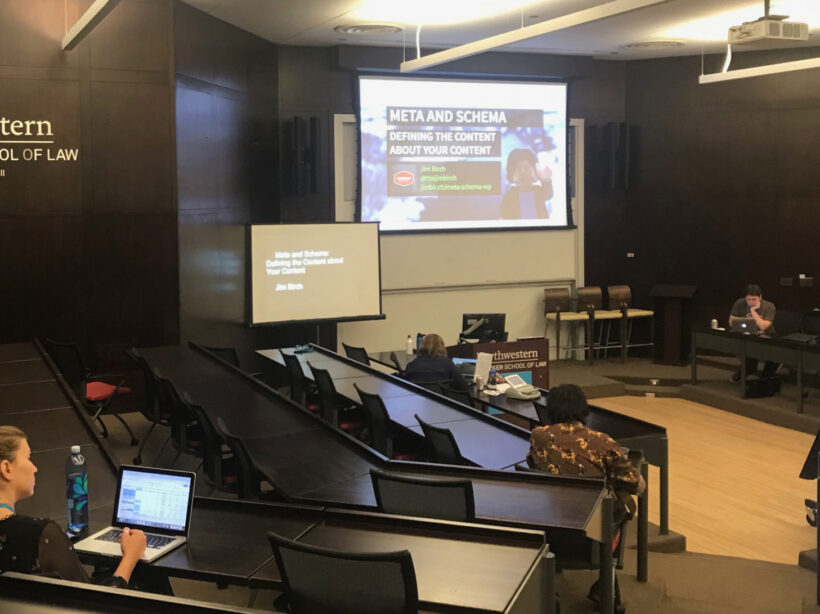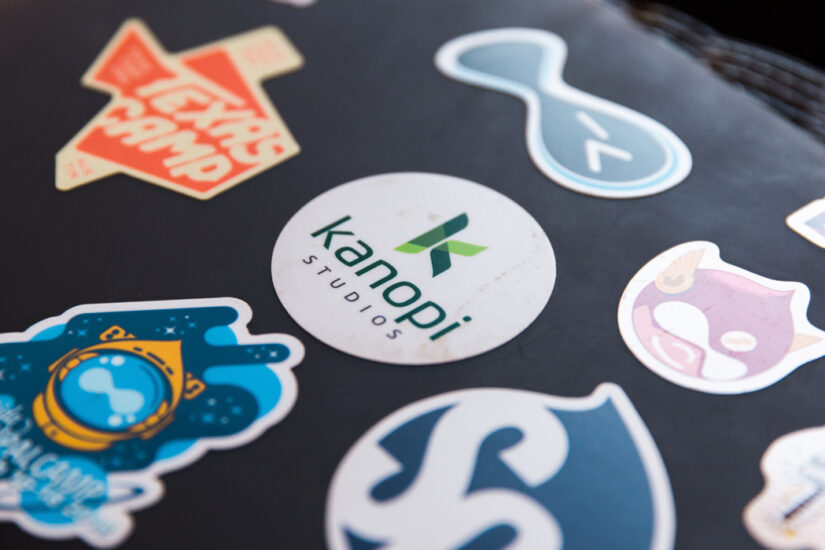 WordCamp for Publishers 2018 was a community-organized event for people who build, manage publications using WordPress. In its second year, the event attracted professionals from higher ed, agencies, and both tech and content teams from national, regional, and hyper-local media organizations.
WordCamp for Publishers 2018 was a community-organized event for people who build, manage publications using WordPress. In its second year, the event attracted professionals from higher ed, agencies, and both tech and content teams from national, regional, and hyper-local media organizations.
This was my first time attending the event, which moves host cities every year. This year the event took place on the shores of Lake Michigan at the Northwestern University Pritzker School of Law in downtown Chicago.
The theme of this year’s event, and the challenge put out to potential speakers by the organizers was “Taking Back The Open Web”. Inspired by Drupal founder Dries Buytaert’s blog post “Can We Save the Open Web”, the organizers asked for sessions that discussed whether an open web ever existed, it’s current state, consequences of a closed web, and how publishers may exist moving forward.
Such a pleasure to hear @jeckman speak today at WordCamp for Publishers. “Taking What Back, and from Whom?: Imagined Communities and the Role of WordPress in the Future of the Open Web” @wcpublishers #wcpub #WordPress pic.twitter.com/9X8OnN7NMi
— Jim Birch (@thejimbirch) August 8, 2018
The result was a plethora of amazing sessions that delved deep into many aspects of the topic, and how it ties into WordPress and publishing. The presentations ranged from technical topics like designing and developing for the new WordPress Gutenberg editor, to case studies and panels about paywalls, implementing large networks of sites, and sustaining hyper-local newsrooms.
Great, in-depth talk on the WordPress Philosophy, the Gutenberg editor, and real life scenarios by @ChrisVanPatten at WordCamp for Publishers in downtown Chicago! @wcpublishers #wcpub pic.twitter.com/ePVBswqhze
— Jim Birch (@thejimbirch) August 8, 2018
I was humbled to be asked to speak and kicked off the second day with a technical session on implementing Schema.org vocabularies for structured data and current best practice meta tags in WordPress.
This session presents a whirlwind, two fisted, no holds barred, data filled session that has almost too much information. I present how to implement and test Schema.org schemas, and current meta tag best practices in WordPress to gain search features in Google and enhance the look of your content on social media sites like Facebook, Twitter, LinkedIn, and Pinterest. I even got to introduce the new Speakable vocabulary for which Google announced support just a few days before, and discuss Google’s support for Datasets, HowTo, QAPage and FAQPage all of which are especially pertinent to publishers.
Very interesting panel on Experiments to create audience connections at WordCamp for Publisher with @sskalko, @carolineporter, @hdbacklund, and @schmalie #WordPress #wcpub @wcpublishers pic.twitter.com/bAe5QU5X8e
— Jim Birch (@thejimbirch) August 8, 2018
All of the sessions from the event were recorded and can be found online at WordCamp.tv. I have a newfound respect for those working on balancing the need for independent journalism with the need to make a profit. Publishers and the tech teams that work with them cover the full gamut of types of stories, editorial workflows, business models, site and app performance, search engine optimization and more. Each one of these things can make or break a site or company. WordCamp for Publishers 2018 provided a unique opportunity to come together to listen, discuss and learn from unique voices in the publishing industry. I will be sure to keep an eye on which city the event moves to next. Thanks to all the volunteer organizers for their professionalism in making WordCamp for Publishers 2018 an amazing and informative event!









